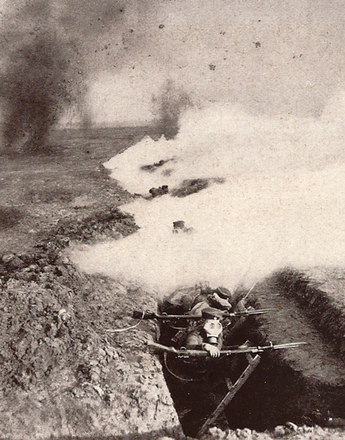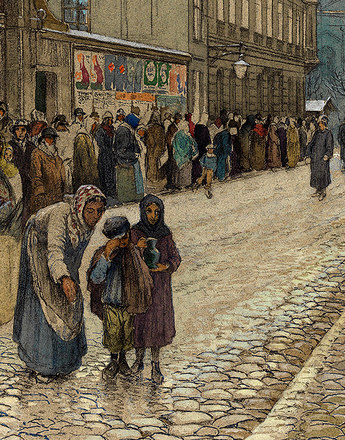After the conquest of enemy territory, the Centrals Powers’ military administrative authorities assumed governmental and administrative functions almost everywhere, with the governor or commander concerned promoted to ‘head of government’. In principle, it was possible to distinguish between friendly and hostile occupied territories; effectively, however, the ‘invaders’’ generals were dominant. Only the lowest level of administration was left in the power of the locals.
At the time of the invasion, the Austrians and the allies certainly did not treat the local population gently. Summary executions and internments of ‘untrustworthy’ or ‘suspicious’ people were not uncommon.
Meanwhile, the decision-makers in Vienna, Budapest and Sofia viewed one another with suspicion. Hungary’s Prime Minister reclaimed Serbia, while the Dual Monarchy's military strove towards a South Slavic union under Croatian leadership. These rivalries led to a row over who should fill the post of governor and that of regional civilian commissioner in Serbia, still occupied by Austria- Hungary. Meanwhile, the remaining part was assigned to Bulgaria, which ultimately was aiming at an annexation of those areas won. Moreover, fights flared up time and again over the stretches of land concerned, whereupon the Bulgarian General Governor even gave instructions to use weapons against Austro-Hungarian soldiers in case of emergency.
At the same time, rivalries continued between the High Command and government circles in Budapest over future occupation policy. Besides, relations between the local population and the Central Powers proved to be equally problematic. The latter also tried to exploit economically the conquered regions, these including Serbia, Montenegro, Albania as well as Romania. The consequences included resistance from the locals and – often linked to this – ‘gangs’ that could never be fully controlled.
Besides the governments of Serbia and Montenegro, this also applied to Albania, which though an ally, lacked an adequate political system, at least according to Berlin and Vienna. Also, an Austro-Hungarian army command remained in charge in this area due to its proximity to the front. So the Albanian population was permitted fundamental civic rights only to the extent that they were compatible with military authority and considerations.
Knezevic, Jovana Lazic: The Austro-Hungarian occupation of Belgrade during the First World War: battles at the home front, New Haven 2006
Scheer, Tamara: Zwischen Front und Heimat. Österreich-Ungarns Militärverwaltungen im Ersten Weltkrieg, Frankfurt am Main 2009
-
Chapters
- The Fading-Out of the Balkan Front
- The War before the War
- Sarajevo and the July Crisis
- Ethnic Conflicts and the Brutalisation of the Battles
- Disillusionment for the Army – The Failed ‘Punitive Expedition’
- ‘The Allies’ Successes’
- The Occupying Regime in Different Regions
- Romania's Entry into the War and Defeat by the Central Powers
- Greece on the Side of the Entente
- 1918 – Peace between Romania and the Central Powers
- Consequences of the War on the Balkans








